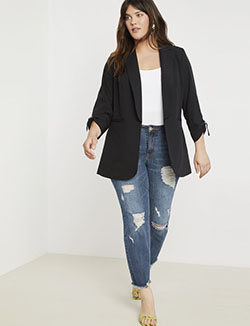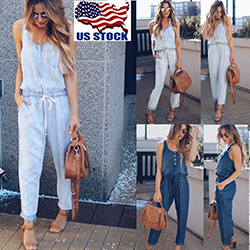
Fashion is no longer just about looking good; it's about making conscious choices that positively impact the planet and society. Sustainable fashion, also known as eco-fashion or ethical fashion, is a movement that aims to transform the entire lifecycle of clothing from production to disposal. It focuses on minimizing the environmental footprint, promoting ethical labour practices, and creating high-quality and durable products.
Understanding Sustainable Fashion
What is Sustainable Fashion?
Clothing, accessories, and footwear that are produced and consumed sustainably minimize environmental harm and respect workers' rights. It considers various aspects, including material sourcing, manufacturing processes, fair trade practices, and the product's lifespan.
Importance of Sustainable Fashion
The rise of sustainable fashion is essential for several reasons. Fashion is a significant contributor to environmental pollution. The excessive use of chemicals, water, and energy in textile production harms ecosystems and human health. By embracing sustainable practices, we can significantly reduce these impacts.
Environmental Impact Of Fast Fashion

Pollution From Textile Production
The fast fashion model, characterized by cheap and trendy clothing produced rapidly, has led to severe environmental consequences. Chemicals used in textile production, such as dyes and finishes, pollute water bodies and harm aquatic life. The emission of greenhouse gases during production and transportation further exacerbates climate change.
Water Consumption And Waste
Fast fashion is notorious for its excessive water consumption. The fashion industry significantly burdens water resources from cotton farming to garment dyeing. Textiles decompose in landfills for years, contributing to the growing waste problem.
Garment Workers' Rights
Fast fashion's relentless pursuit of low costs often leads to the exploitation of garment workers. Sweatshops with poor working conditions, low wages, and long hours are prevalent in many manufacturing hubs. Consumers can advocate for fair treatment and safer working environments by supporting sustainable fashion.
Benefits Of Sustainable Fashion
Reduced Environmental Footprint
Sustainable fashion reduces the industry's environmental footprint through various means. This includes using organic and recycled materials, adopting efficient manufacturing processes, and implementing responsible waste management strategies. By choosing sustainable options, we can minimize resource depletion and pollution.

Ethical and Fair Production
One of the key pillars of sustainable fashion is ethical production. Brands committed to sustainability often prioritize fair trade practices, ensuring workers receive fair wages and work in safe conditions. As a result of this shift towards ethical manufacturing, communities are empowered and social justice is promoted.
High-Quality and Durable Products
Sustainable fashion emphasizes quality over quantity. By investing in well-made garments, consumers can enjoy durable, timeless products and are less likely to end up in landfills. Quality materials and craftsmanship also ensure that clothing retains its shape and appearance for longer.
How To Transition To Sustainable Fashion
Buy Less, Choose Well
A fundamental step in embracing sustainable fashion is to adopt a mindset of conscious consumption. This means buying fewer items and focusing on versatile pieces that can be mixed and matched. With a capsule wardrobe, you can reduce the need for unnecessary shopping and get the most use out of your existing closet.
Sustainable dresses from neunomads.com are gaining popularity in the fashion industry due to their positive impact on the environment and society. These dresses are made from ethically sourced and eco-friendly materials. These stylish and environmentally friendly dresses contribute to a more sustainable fashion industry.
Opt for Sustainable Fabrics
Choosing sustainable fabrics is a crucial aspect of sustainable fashion. Look for materials like organic cotton, linen, hemp, and Tencel®, produced with minimal environmental impact. These fabrics are often more durable, breathable, and biodegradable than conventional synthetic options.
Support Ethical Brands
Supporting ethical fashion brands is an effective way to contribute to the sustainable fashion movement. Ensure your chosen company prioritizes transparency, fair trade practices, and ethical sourcing. Many sustainable brands also provide information about their supply chains and certifications to ensure authenticity.

Embrace Secondhand and Vintage
Another sustainable approach is to embrace secondhand and vintage fashion. Thrift stores, consignment shops, and online platforms offer a treasure trove of pre-loved clothing waiting to be rediscovered. In addition to extending garments' lifespans, this also reduces the need for new clothing.
Extend the Lifespan of Your Clothing
Take good care of your clothing items to make your wardrobe more sustainable. Follow proper washing and storage instructions, repair minor damages promptly, and consider upcycling or repurposing old garments. By extending the lifespan of your clothing, you can reduce waste and make a positive impact.
The Bottom Line
The rise of sustainable fashion marks a significant shift towards a more responsible and conscious approach to clothing. Choosing sustainable options minimizes environmental impact, supports ethical practices, and contributes to positive change within the fashion industry. Whether through mindful consumption, supporting ethical brands, or embracing secondhand fashion, everyone can participate in the sustainable fashion movement.

















